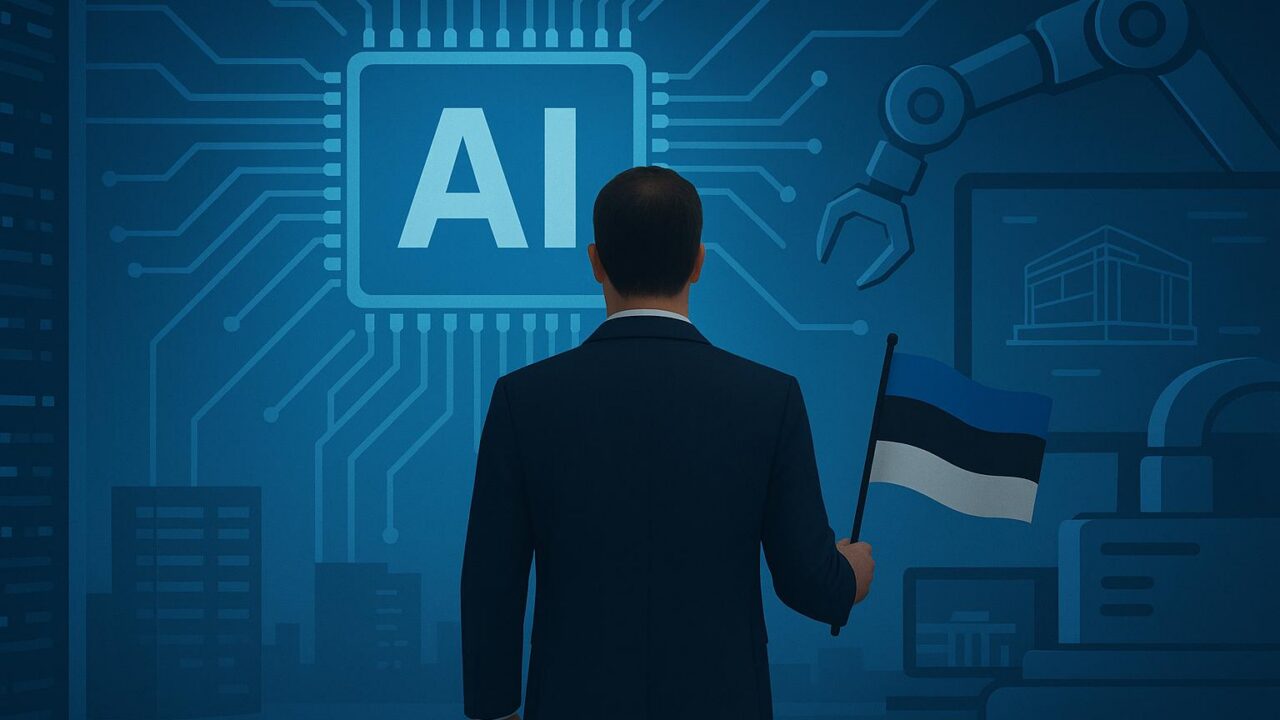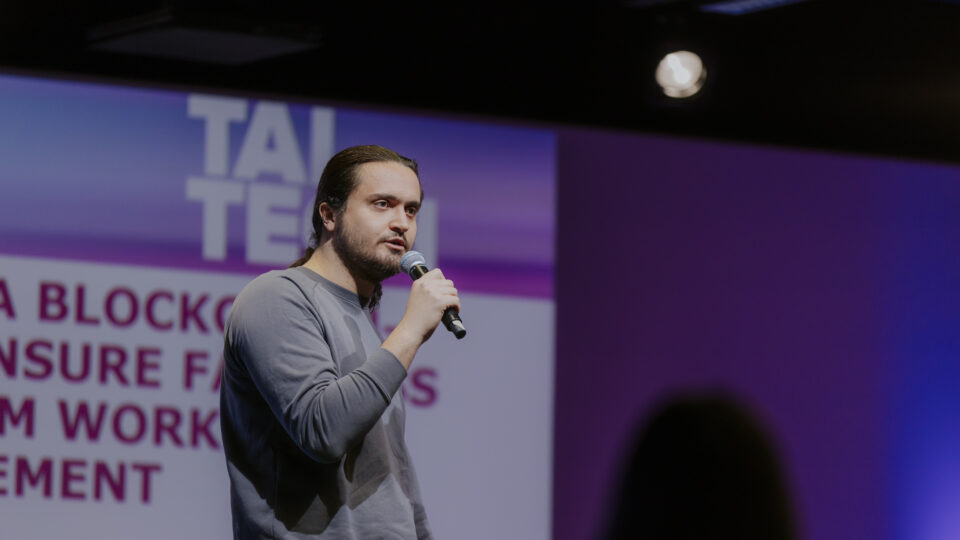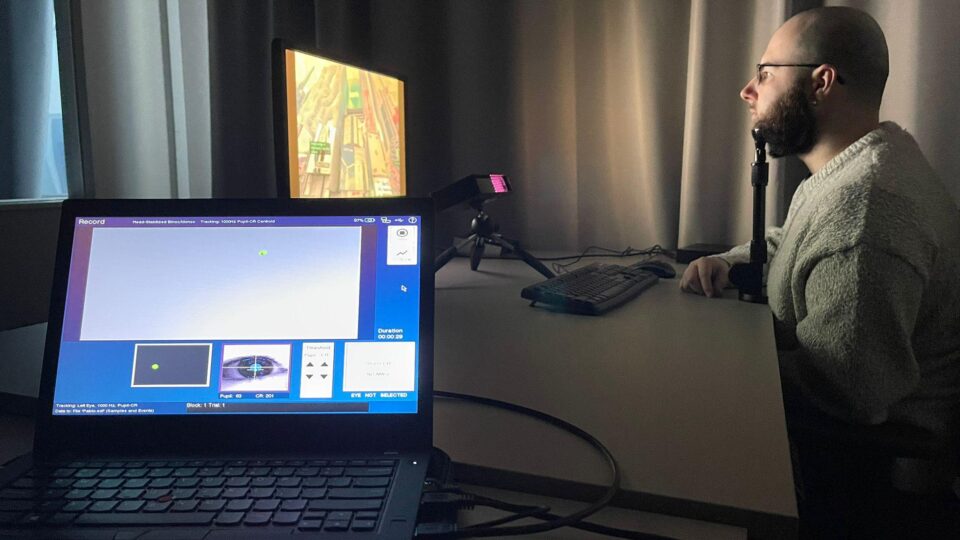The swift rise of artificial intelligence places small states at a critical juncture – where opportunity meets vulnerability. AI holds the promise of more efficient public services, enhanced security, and sustained competitiveness. Yet it also deepens technological dependence, obscures decision-making, and poses serious challenges to data sovereignty and democratic legitimacy.
Can a small state remain the master of its own destiny in a world increasingly shaped by superpowers and technology giants?
According to Professor Tauno Otto of TalTech’s School of Engineering, a small state can carve out software-level autonomy by harnessing EU resources to build open digital twins and tailored language models. Digital twins lessen reliance on foreign testing environments, offering a secure means to evaluate critical systems and manage crises with precision. In Otto’s view, digital solutions developed and governed locally are essential to safeguarding technological sovereignty and national security.
Digital twins act as secure laboratories where Estonia can stress-test AI models, simulate cyberattacks and rehearse continuity procedures — all without jeopardising real-world infrastructure or services. “Estonia gains a concrete advantage from the digital twin city models being developed in collaboration with TalTech, as well as our own industrial test labs,” Otto said. “These provide a domestic platform for AI-driven experiments and crisis simulations, reducing our reliance on foreign testing environments.”
“If Estonian researchers and engineers lack access to cutting-edge chips, it could stall our development.”
In terms of hardware, Estonia is inevitably reliant on foreign nations. “If Estonian researchers and engineers lack access to top-tier chips, it could stall our development,” said Professor Maksim Jenihhin from TalTech’s School of Information Technologies. He warns that technological dependence poses a serious national risk – one that could escalate swiftly in times of crisis or geopolitical tension.
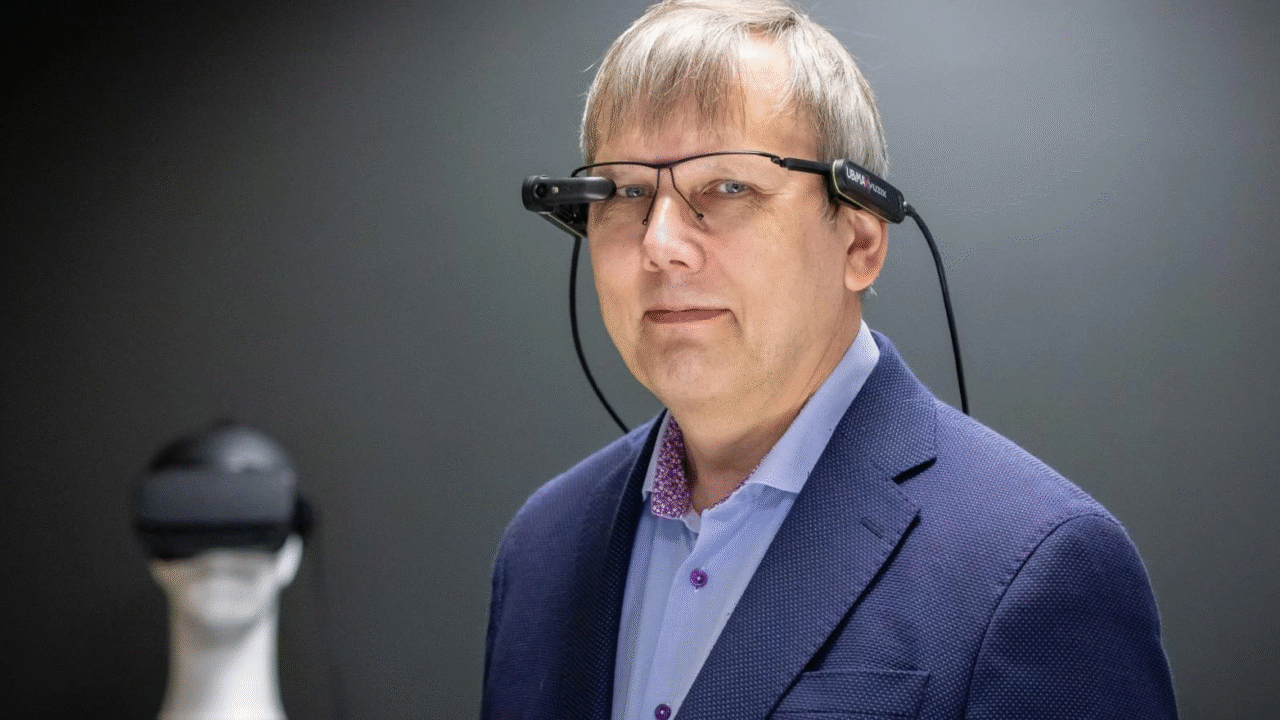
Tauno Otto. Photo: e-Estonia
Industry: a prime target in the new digital battlefield
While technological dependence looms as a long-term strategic threat, cyberattacks are already a daily reality. According to Otto, the industrial sector bears the brunt of these assaults worldwide, with 26 per cent of attacks directed at it. The chief motive is access to industrial assets – above all, intellectual property. “Every industrial company in Estonia or any other small state must understand that when it comes to cyberattacks, the question is no longer if, but when,” he said.
“Every industrial company in Estonia or any other small state must understand that when it comes to cyberattacks, the question is no longer if, but when.”
Artificial intelligence offers powerful support for cybersecurity, capable of analysing vast volumes of data and detecting attack patterns with a speed no human can match. However, Professor Rain Ottis from TalTech’s School of Information Technologies stressed that decision-making authority should not be delegated to AI. “AI can review existing processes to identify ways to support the system,” he explained. In a crisis, it could carry out initial analysis of incoming data, provide real-time translations for emergency communication, or model the spread of floods and other unfolding scenarios.
In Ottis’s view, any AI system intended for crisis response must first be rigorously tested and validated through exercises – only then can it support sound decision-making under pressure. “Ultimately, the final decision must rest with a human,” he said. “An AI error in a strategic situation could prove fatal.”
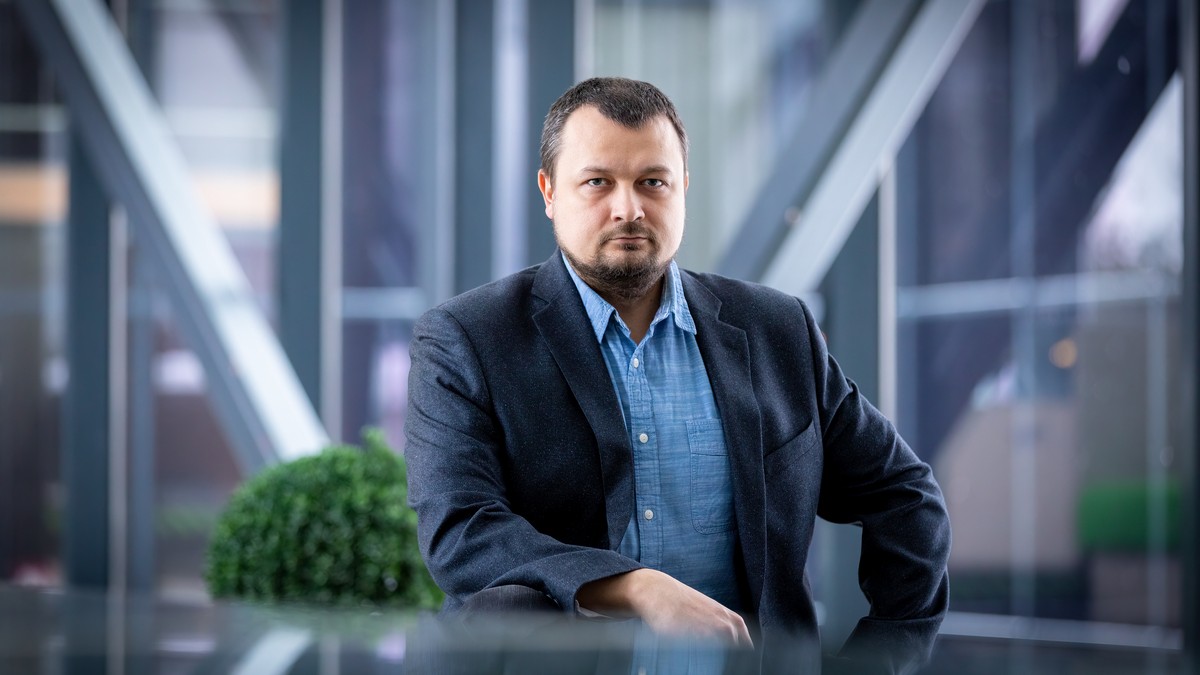
Professor Rain Ottis emphasizes that AI can support during crises, but must not make the final decisions – ultimate responsibility must remain with humans. Photo: TalTech
Defending democracy: open technology and informed citizens
Artificial intelligence promises more efficient governance – but it may also erode the very foundation of democracy: public trust. Aleksi Oskar Johannes Kajander, a doctoral researcher at TalTech’s School of Business and Governance, warned that if trust in democracy erodes, society becomes (even more) vulnerable to external influence. Opaque algorithms risk widening social divides and deepening the crisis of trust at the heart of democratic societies.
Ottis also noted that even the engineers behind AI systems often struggle to fully understand how they function. This so-called “black box” problem threatens citizens’ right to make sense of decisions that affect their lives – undermining democratic legitimacy and fuelling public discontent.
Jenihhin sees a solution in open and controllable AI. Open-source language models – such as Bloom – and hardware architectures like RISC-V offer small states the possibility to shape their own technological future. These tools not only improve oversight and security but also give citizens a clearer window into how decisions are made.
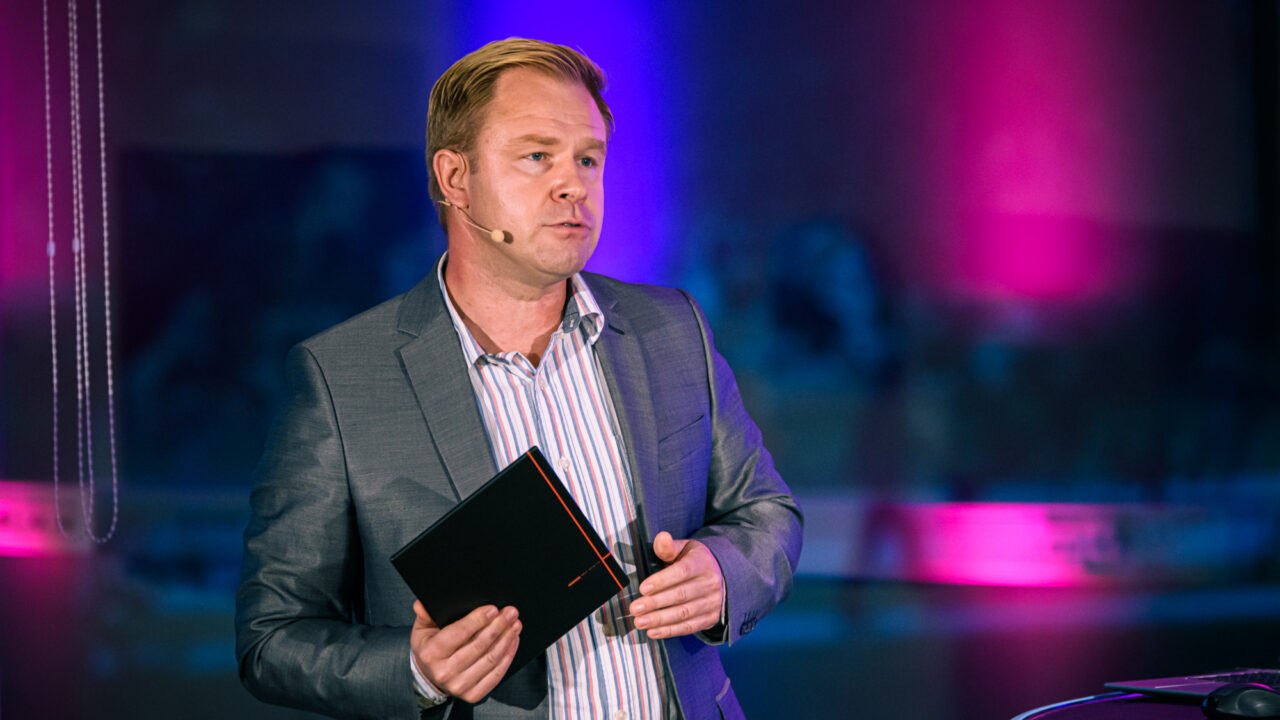
Professor Maksim Jenihhin warns that without access to top-tier chips, a small country may lose its technological momentum – hardware dependency poses a serious security risk in times of crisis. Photo: TalTech
Small states on the geopolitical stage
The standards and global norms governing artificial intelligence do not arise by chance – they are forged in the crucible of ongoing geopolitical power struggles. According to Holger Mölder, Associate Professor at TalTech’s Department of Law, the world is shifting away from a rules-based international order towards one dominated by power-based agreements between major states: “This undoubtedly narrows the space for small states to participate in the debate.”
Yet meaningful opportunities exist. Estonia is actively involved in shaping the EU’s Artificial Intelligence Act and supports international efforts to regulate autonomous weapons systems – a reminder that small states can help shape the global agenda, provided they act with coordination and consistency. As Mölder noted, international cooperation networks and joint proposals amplify the voice and influence of smaller nations.
This was echoed by Kajander: “When small states cooperate and present joint proposals, they can significantly increase their impact.” Through collaboration, small nations not only defend their interests but also help shape the norms of a technological future – one rooted in democracy and human rights.
“When small states cooperate and present joint proposals, they can significantly increase their impact.”
At the same time, this approach demands strategic agility and a readiness to defend national interests amid complex – and often polarised – international negotiations. For small states, it means being proactive, adaptable and diplomatically astute: not passive observers of technological change, but active participants in shaping its course.

According to Associate Professor Holger Mölder, AI rules are shaped by major powers, but small states can increase their influence through cooperation and consistency. Photo: TalTech
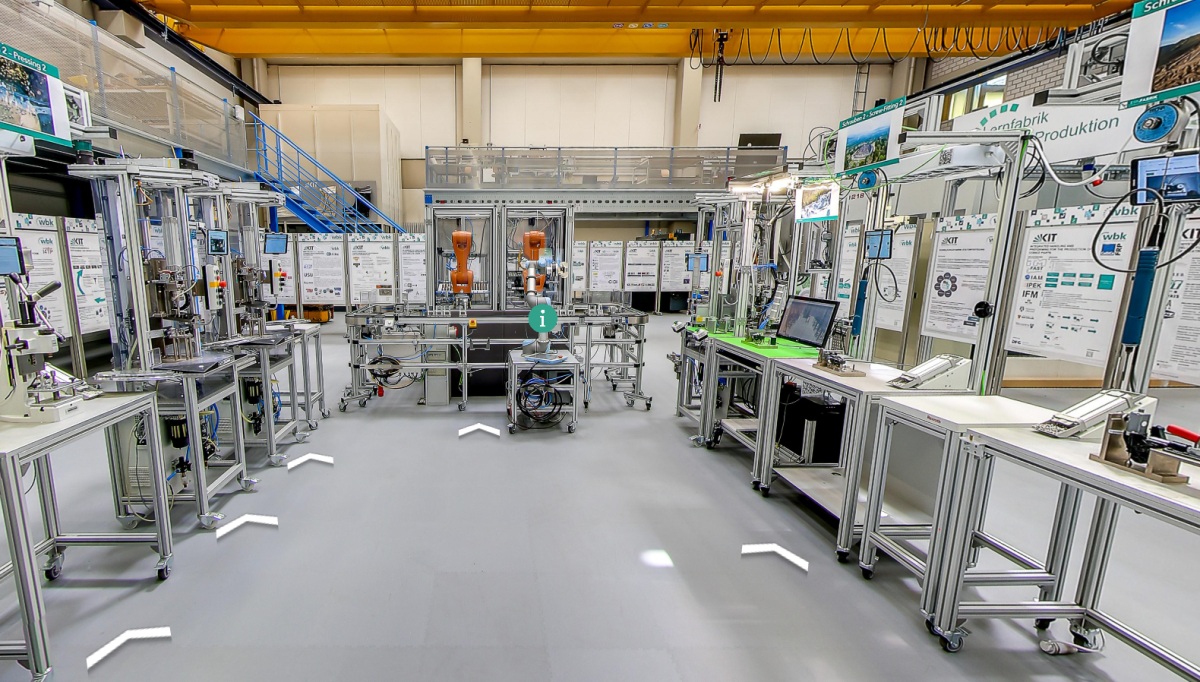
Training factory at the Karlsruhe Institute of Technology in Germany. Photo: Lernfabrik
The age of AI demands conscious — and courageous — choices from small states
In the age of artificial intelligence, the future of small states – including Estonia – will depend on deliberate, bold decision-making. AI is no neutral tool; it is a powerful force that can either fortify or erode the foundations of democracy and national security.
Experts from TalTech highlighted several key messages:
-
Software autonomy and edge AI offer strategic opportunities for small states – but dependence on foreign hardware remains a critical risk.
-
In cybersecurity and crisis management, AI should be a supporting, not decision-making tool – AI solutions must first be mapped, tested and validated.
-
Transparent and understandable AI is essential to protect democratic legitimacy – citizens must be able to comprehend and control the systems that affect them.
-
Small states can influence international standards – but only if they cooperate and present their positions collectively.
-
Education, research, digital twins and learning factories are crucial to ensuring long-term autonomy and resilience.
All experts agreed that when it comes to artificial intelligence, human leadership and a clear awareness of risk must remain paramount. As Kajander aptly put it: “Fire is a good servant but a bad master” – and the same holds true for AI.

